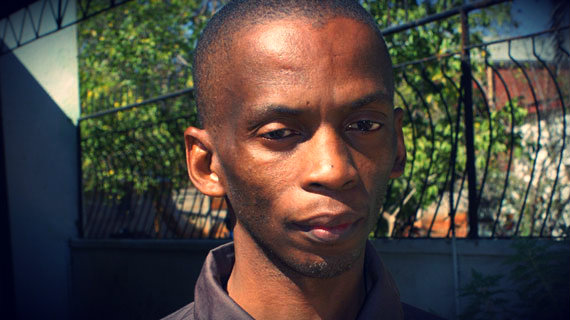
I WAS not surprised when our beloved national soccer team — the Warriors— were sent packing by their Tanzanian counterparts. It has become a national pastime to expect to succeed without adequately preparing.
This is not a problem that is found in soccer alone, but in the manner in which we do everything in Zimbabwe including politics, development and business. The loss by the Warriors is an epic example of how we, as a nation, have perfected the art of “planning to fail”.
Where are we?
Just the other day I was watching highlights from the 1966 World Cup in England which was won by the hosts. I then went on to watch the match between the Warriors and Tanzania and was momentarily confused about which match was being held in 1966. If we are to move forward as a country, surely we have to catch up with the rest of the world in as far as scientific, technical and technological advances are concerned.
Before one talks about the quality of soccer, one is amused by the quality of our electronic media journalism. While Charles Mabika is an amazing soccer commentator, we must take note of the fact that our sports journalism, especially at ZBC, lacks the requisite analytical edge based on factual or statistical analysis and research.
One would have expected an analysis of the team’s collective performance for the past year, individual player statistics such as number of games played this year, number of goals scored, assists for strikers, interceptions and tackles for defenders etc.
I do not remember any of the so-called analysts referring to the formations used by the teams and the efficacy of the adopted approaches and systems.
This helps in the analysis of team’s performance which should be based on verifiable data and not objective opinion of an analyst saying “Charlie we are going to beat them” or “we need to up our game in the second half”. Clearly both the commentators and the analysts lack or lacked background information and/or current information to make informed analyses about performance, change of strategy and so on.
- Chamisa under fire over US$120K donation
- Mavhunga puts DeMbare into Chibuku quarterfinals
- Pension funds bet on Cabora Bassa oilfields
- Councils defy govt fire tender directive
Keep Reading
I do not blame the journalists only because this is also a function of how well a country is doing economically to be able to afford the software and technological accessories such as micro chips to track individual player performance. Nonetheless, in the age of the Internet it should be possible to ascertain, for example, the performance of Ovidy Karuru in France or the number of games played by Denver Mukamba in South Africa.
Such information is available at the click of a button or nudge of a mobile phone’s Google search at club websites. Blind patriotism will not make us win as long as we don’t integrate modern sports administration and sports science with requite infrastructure, planning, resources and global trends.
This is the same as our economy which we expect to grow in the absence of simple commonsense, planning and a sound technological base. The country has failed to religiously stick to its own economic policies or work through a policy until its logical conclusion.
If I may ask outside of the sterling work of the likes of the Premier Soccer League’s Kennedy Ndebele, what have we done to develop a 15-year or 20-year soccer development strategy which can see us developing a vibrant junior policy, soccer development academies, supporting institutions, a competitive league and a sound revenue base? This would see us qualifying for Africa Cup of Nations in five years, the World Cup in 10 years and winning one or two continental championships in 10 years’ time at junior level.
This takes years of careful planning and preparation. We cannot just expect to succeed without planning for success.
The country has failed to send junior teams to tournaments for a number of years, but still expects to do well in senior tournaments without developing a junior base. This is shocking and is akin to expecting to succeed without planning to succeed.
Our football at national team level at times is run the way the country is run and our country is run the way our soccer is run. How do we expect to succeed when we plan to fail by failing to plan?
The state of sport in Zimbabwe is a cause of concern and so is the state of the country which is by my estimation somewhere in 1964 in terms of standards of living. I actually think in terms of our soccer we are somewhere in the ’70s. Our cricket reached a crescendo in the late ’90s, but now our best players are coaching in Bangladesh, England and other parts of the world.
Does it not remind you of the commercial farmers that we chased away who are producing huge quantities of crops in Namibia, Mozambique and Nigeria and who we now have to import from?
In terms of boxing, we are somewhere in the ’60s because in the ’80s we had the likes of Proud “Kilimanjaro” Chinembiri, Langton “Schoolboy” Tinago, Stix Macloud, Kid Power and others.
As Zimbabweans, we need to start taking ourselves seriously and not expecting miracles to subsidise our poor preparations which are well chronicled and have assumed legend status. We need clearly laid out and articulated sports policies and development frameworks. The national team is just a microcosm os a bigger problem.
Let us stop planning to fail.
Dumisani Nkomo is a political commentator and chief executive officer of the Habakkuk Trust. He writes in his personal capacity. www.dumisanionkomo.blogspot.com. WhatsApp on 0779 617 926.










